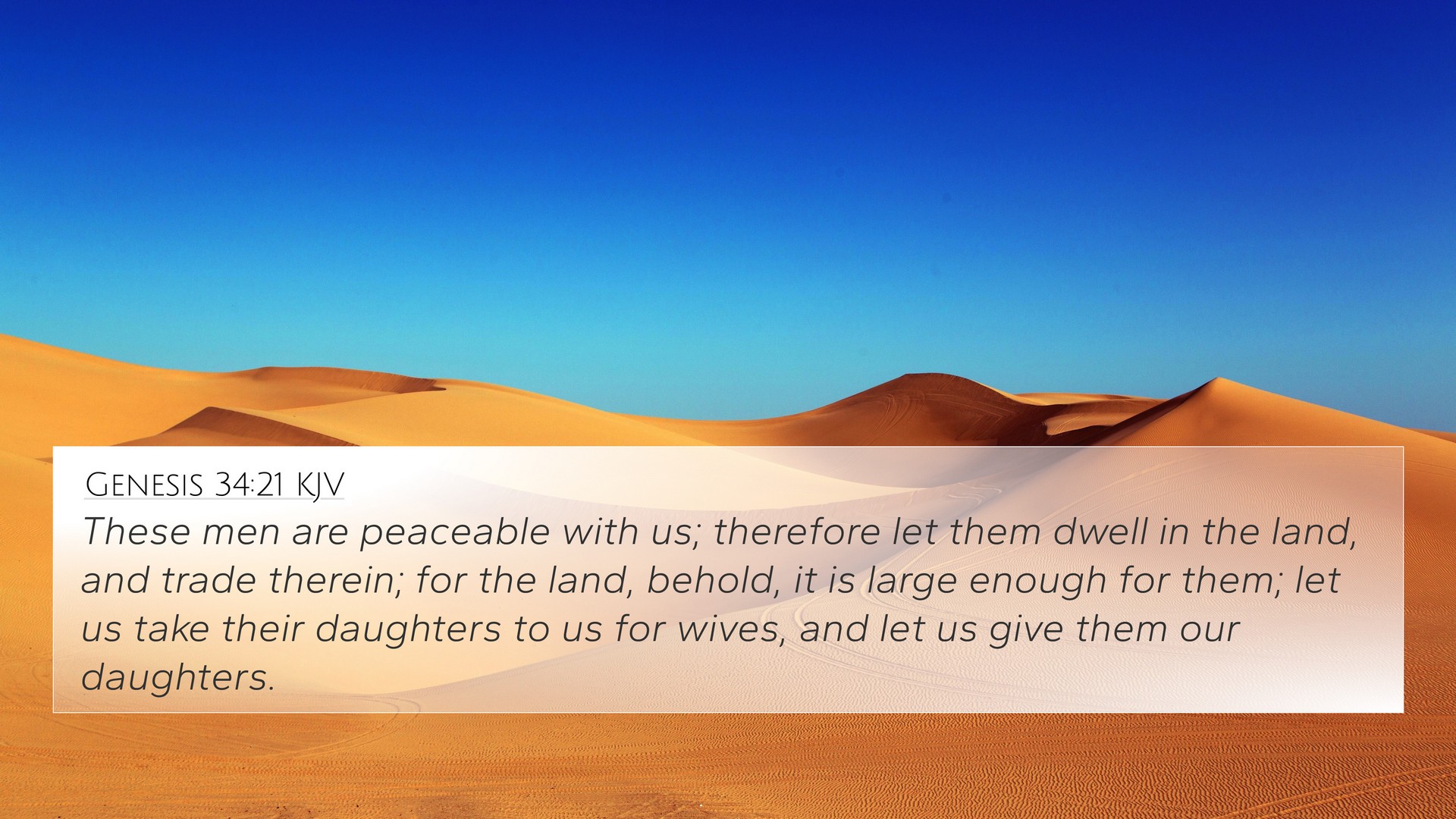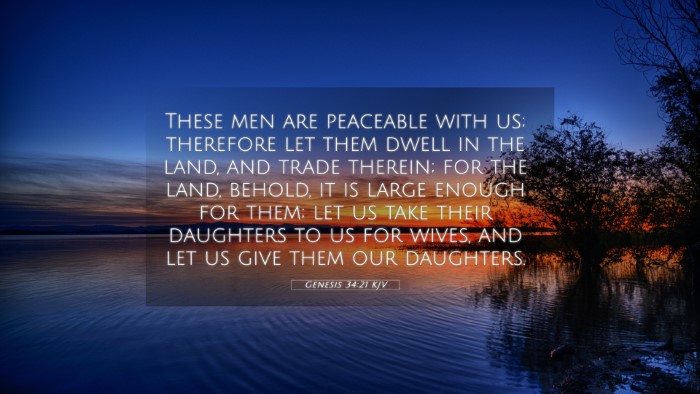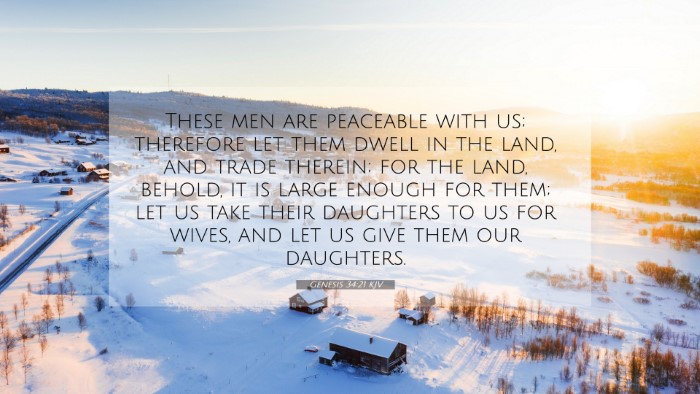Genesis 34:21 Overview
The verse in Genesis 34:21 occurs in the narrative concerning the aftermath of an incident involving Dinah, the daughter of Jacob. After she is defiled by Shechem, the events that unfold illustrate themes of justice, honor, and the consequences of actions taken in haste. The verse reads: ‘These men are peaceable with us; therefore let them dwell in the land, and trade therein; for the land, behold, it is large enough for them.’
Meaning and Insights from Commentaries
Interpretation According to Matthew Henry
Matthew Henry outlines that this verse reflects the opportunistic perspective of Shechem's family. They wish to present themselves as peaceful and accommodating, suggesting that the Israelites can reside and trade in the land. This implies a level of disingenuousness in their approach, as it comes in the wake of a serious offense. Henry also implies that this verse showcases the tensions and negotiations that often arise from conflicts.
Albert Barnes' Explanation
Albert Barnes expands on this by noting the strategic motives behind the offer of peace. The verse highlights how Shechem, having committed an act of violence against Dinah, now desires an alliance through trade and cohabitation. Barnes emphasizes the contrast between their previous aggressiveness and their present argument for peace, indicating an underlying manipulation in their plea.
Insights from Adam Clarke
Adam Clarke provides a rich contextual analysis, suggesting that this plea for peace signifies a longing for stability after chaos. The land that is large enough for both groups indicates a prophetic insight into the future multiplications of Jacob’s descendants and the eventual claim to the Promised Land. Clarke's commentary draws attention to the irony present in the request; the families are attempting to rebuild from an act of violence.
Thematic Connections and Cross-References
This verse touches upon larger themes in Scripture regarding reconciliation, conflict resolution, and the complexity of human interactions, particularly in the context of sin and consequences.
- 2 Corinthians 5:18-19: Highlights the theme of reconciliation between God and humanity.
- Matthew 5:9: Blessed are the peacemakers, emphasizing the value of peace.
- Exodus 21:16: Addresses the seriousness of kidnapping and sin against others.
- John 14:27: Jesus speaks about giving peace, contrasting worldly agreements.
- Romans 12:18: Encouragement to pursue peace with all.
- James 3:18: The connection between righteousness and peace.
- Proverbs 16:7: The idea that when a man's ways please the Lord, he makes even his enemies to be at peace with him.
Application and Reflection
This verse encourages believers to critically analyze declarations of peace and to be mindful of the motives behind such assertions. The narrative illustrates the complexity and depth of relationships, urging a call for genuine reconciliation that surpasses mere verbal agreements. This could be especially relevant in today’s context where actions often speak louder than words.
Conclusion
Genesis 34:21 serves as a compelling reminder of the complexities behind actions driven by self-interest and the need for true reconciliation founded on honesty and mutual benefit. The accompanying commentaries by Henry, Barnes, and Clarke provide rich insights into the pursuit of justice, the importance of honest discourse, and the consequences of sin in the relational dynamics among people.


